

February 22, 2003
Child of Wars
It seems like I have been at war all my life. One of my earliest memories is from age four. In 1941 Brooklyn, my Uncle Jack was a civilian volunteer air raid warden before he was drafted. He took me to the top of a neighborhood apartment building that was his station, and showed me the sandbagged positions, the spotting binoculars, and the other gear that impressed and fascinated a boy of that age in a nation at war. The high point of the visit was when he put the steel hat that he wore on my head, which immediately swelled to fill it. I thought my Uncle Jack was about the most important man around, next to Dad.
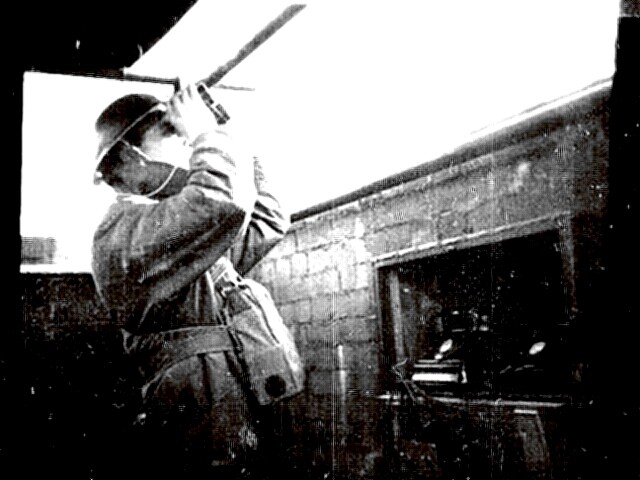
Later, I remember being waked from a sound sleep by sirens, and running into the living room on Dorchester Road to find it lit by candles with heavy black drapes drawn over the windows. My Mom explained that it was only a drill, and the blackout curtains were to keep any light from shining out into the night sky that might help enemy bombers find their targets. 
In my five-year-old minds eye I saw myself silhouetted against the night sky with an enemy bombardier high above looking through his bomb sight and releasing a thousand pound bomb that fell straight towards my head.
![]()
It was and is a powerful image. For the rest of my life I have been a combatant.
After we moved to San Jose in 1942, I remember helping Dad fight the gophers in the victory garden that we planted in the huge backyard of that house we rented on 19th Street. He would take some tubing, attach it to the tail pipe of the 1936 Buick that was the family car, and stick the other end down the gopher hole; then he would start the engine. 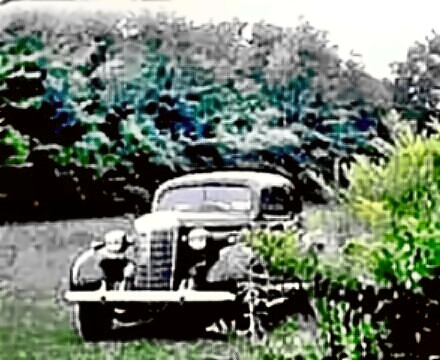
We took up positions at the other exits from their extensive underground subway system with rakes in hand to whack them if they tried to escape. Secretly, I prayed that no gopher would pop out of the hole I was guarding, because in such a confrontation it wasn't clear to me who would be the aggressor. Fortunately, I cannot recall ever being called upon to carry out my whacking duties. When no gophers emerged after some minutes of the gas attack, Dad would shut down the Buick (gas after all was rationed) and we would go to Plan B. Plan B was the Chinese Water Torture Method. The exhaust hose was replaced with a garden hose and water was used to fill up the underground passages and flush the critters out. We took up our stations again and prepared to dispatch the pests, but alas only failure. This may not seem like an important part of the war effort to you, but it was the only active combat that Dad or I saw during WW-II.
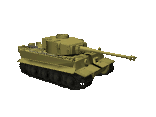
When my father moved us to California during the early days of the war, he expected to be drafted in the near future. My maternal grandparents, Henry & Anna Avrech, had settled in San Jose, and the plan was to leave mom and the two boys where the grandfolks could keep an eye on them. Two of my mom's brothers had already moved their families to the Santa Clara Valley, so there was an established family support group in place there. When my father finally closed up his law practice in Brooklyn and followed us out to California, he had no job, so while he was waiting to go into service he went down to a local defense plant and applied for a job as a welder, a skill that he had picked up in night school.
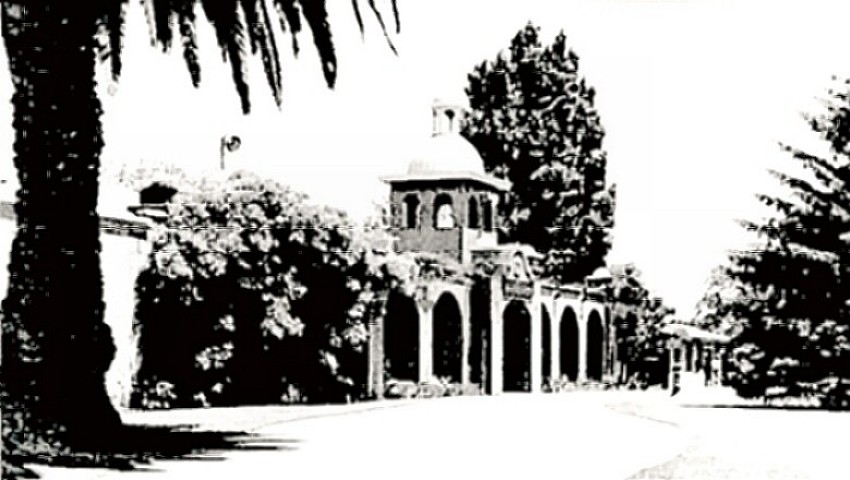
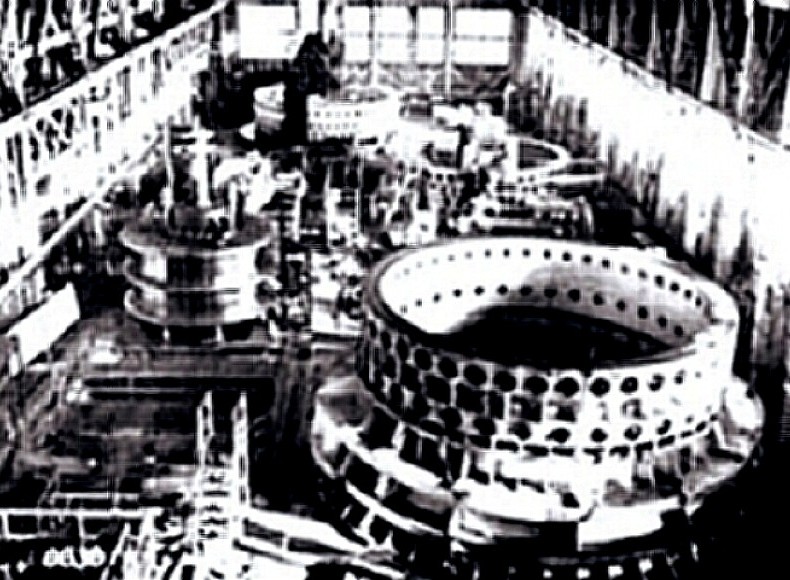
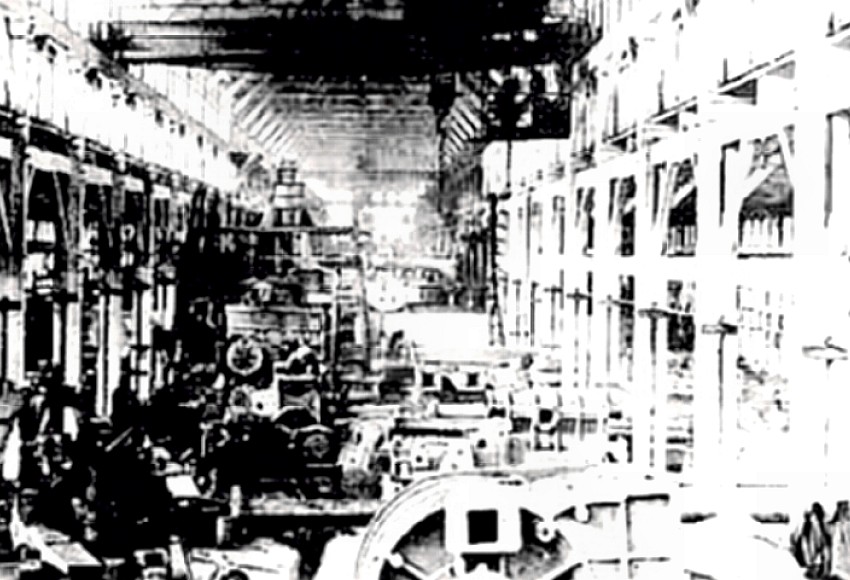
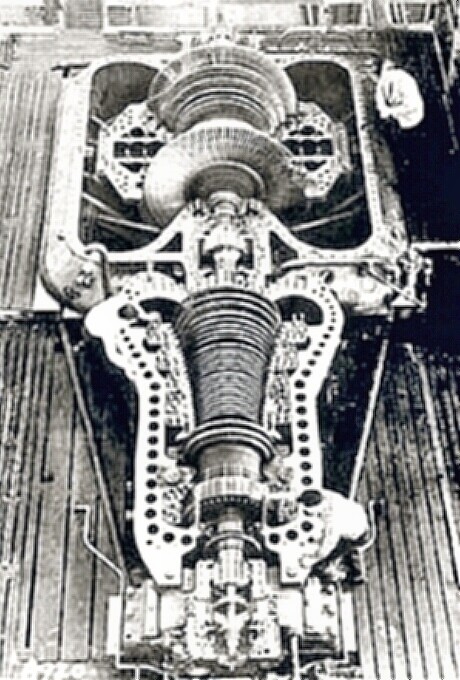
When the folks in Personnel at Hendy looked over Dad's application and noted that he was a college graduate with a law degree, over his repeated protests they put him to work in the office instead of as a welder.
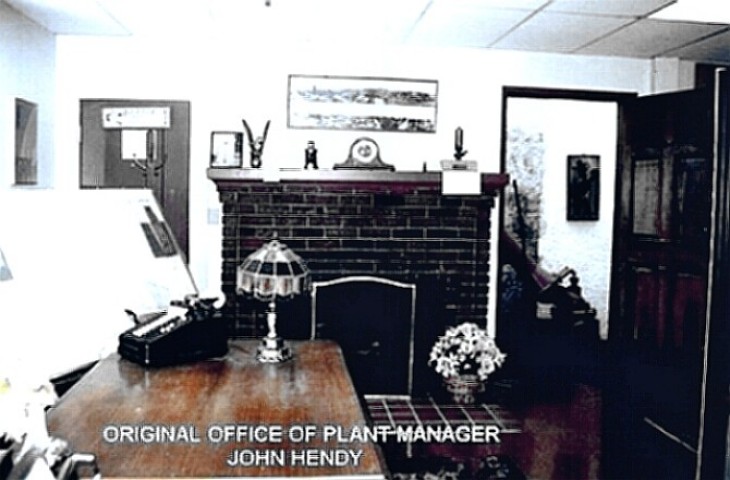 He was told that the plant had plenty of welders, and what they really needed was lawyers. They were in the midst of complicated negotiations with the Maritime Commission, and needed legal help with the contracts. He remained at Hendy's until the end of the war and emerged at the other end as Chief Cost Accountant for the plant. I still have a nice Bulova watch with an inscription on the back of the case that reads: "To Leon from the Swing Shift at Hendy's."
He was told that the plant had plenty of welders, and what they really needed was lawyers. They were in the midst of complicated negotiations with the Maritime Commission, and needed legal help with the contracts. He remained at Hendy's until the end of the war and emerged at the other end as Chief Cost Accountant for the plant. I still have a nice Bulova watch with an inscription on the back of the case that reads: "To Leon from the Swing Shift at Hendy's."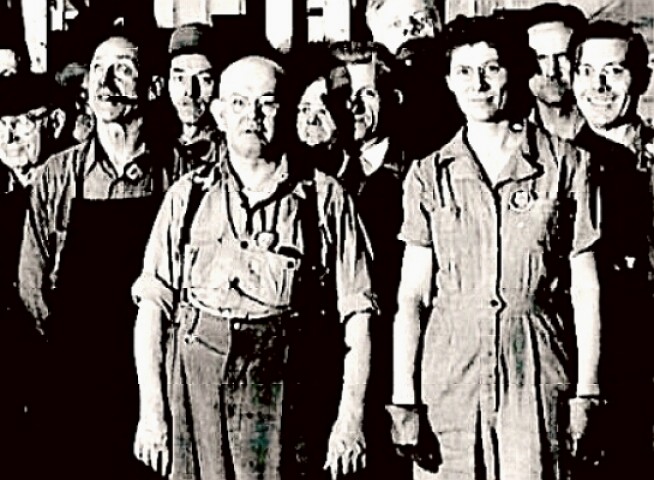
The only member of my family who saw active service in WW-II was my Uncle Jack, who ended up in a Army Military Police Unit in the European Theater. He brought back a collection of German medals, ceremonial swords, and daggers that he had "liberated" during the occupation, and that brought me endless hours of fascination as a kid.

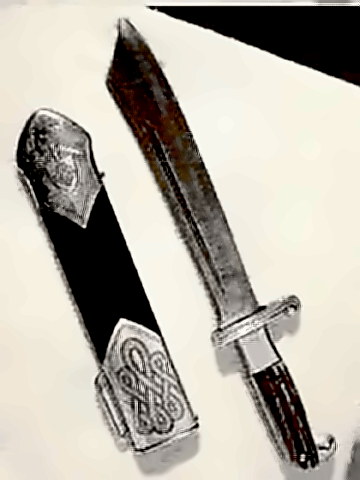
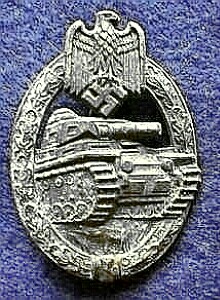
He never would talk to me about the war though. Before I learned not to ask, he would get a look in his eyes (one of which was blue and the other of which was not) and just change the subject. I know that look. It is the same one that now comes into my eyes (both of which are hazel and splotchy) when someone asks me what I did in Vietnam.
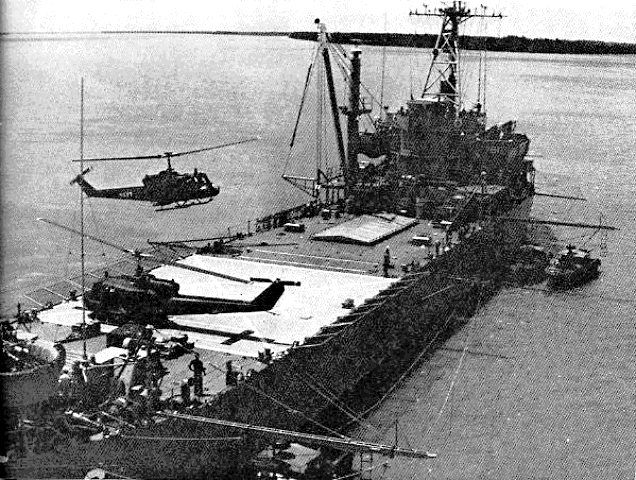
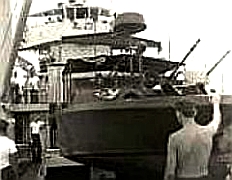
It is a look that appears in eyes that have seen the ugliness of war, and it is born of the certain knowledge that the brain behind them harbors memories of taking the life of other human beings. It doesn't matter much what the cause was. It could have been a just and holy war or a dirty little incident. The taking of human life admits one to a large but select club that has no secret handshake but that recognizes comrades in a glance. It is a fraternity that few seek to join, but once you are initiated you receive a lifetime membership. The dues can be costly, as they are paid every day in the real spiritual coin of the realm. Will Munny, the gunfighter protagonist in "The Unforgiven," has it right when he tells The Kid that it is serious business when you kill a man because you take away everything he has,
and everything he would have had.
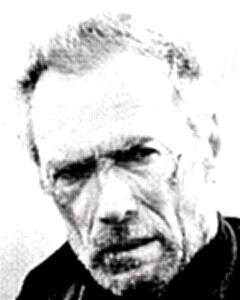 I know.
I know.
There were constant reminders of WW-II on the home front. 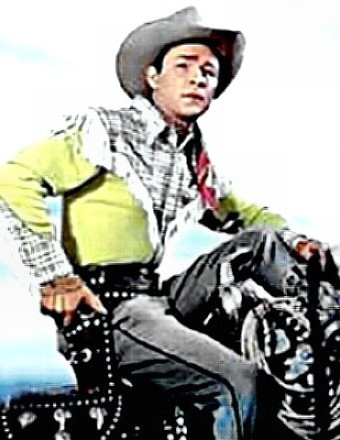 When you went to the Saturday matinee with your cousin in Redwood City, before the Roy Rogers western feature came on, and after the Bugs Bunny cartoon, there was the Movietone News with footage of tanks, ships, fighters, or bombers,
When you went to the Saturday matinee with your cousin in Redwood City, before the Roy Rogers western feature came on, and after the Bugs Bunny cartoon, there was the Movietone News with footage of tanks, ships, fighters, or bombers,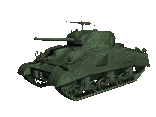

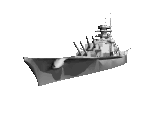
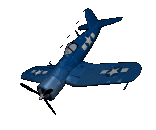
or, later on, of the skeletal figures of Jews liberated from concentration camps. Images that are still in my head, seen as they were through the eyes of boy.
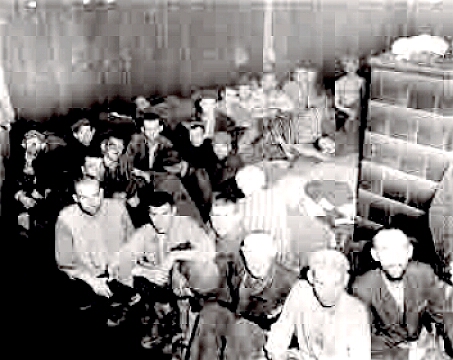
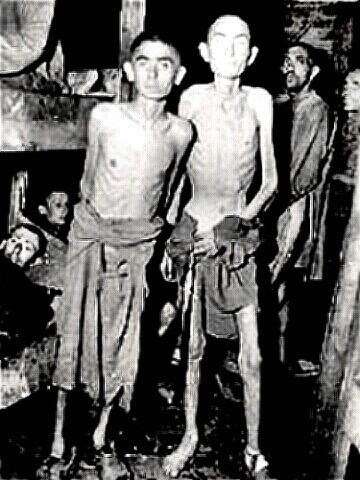
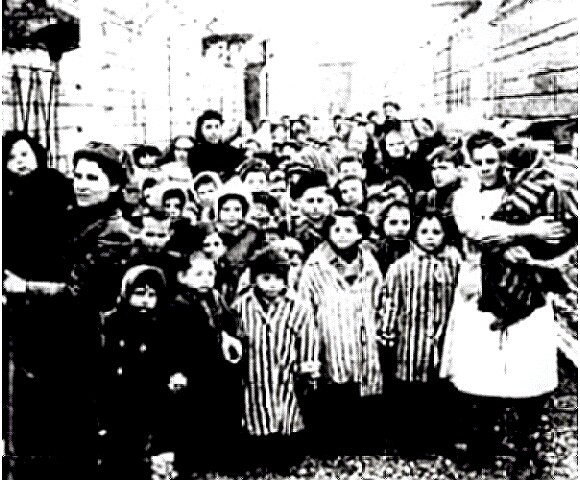
During the drive up the Peninsula from San Jose you listened to your folks chatter about the gas that was being burned and the tires that were being worn. Those things were precious and were rationed. You knew that because you were told, and because you had seen the ration books with their valuable coupons for sugar, and coffee, and nylon stockings, and so many other things that were needed by the troops in the field. 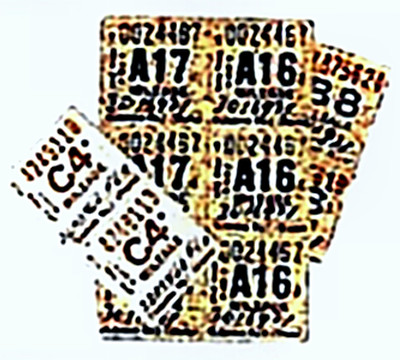 I always wondered what the G.I.s did with all those nylons until I saw the films after the war that showed them going off smiling with those French and Italian women. You will never convince me that all that nylon went into parachutes for the 82nd Airborne.
I always wondered what the G.I.s did with all those nylons until I saw the films after the war that showed them going off smiling with those French and Italian women. You will never convince me that all that nylon went into parachutes for the 82nd Airborne.
War has casualties.
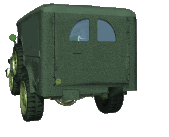
In addition to the millions who died on the battlefront in WW-II, and the additional millions who perished in the holocaust, there were countless other civilian casualties. I know; I was one of them. No, I was not injured as collateral damage from some stray munition. Neither did I suffer the loss of a loved one. There was, however, the boarding school. You see, my parents loved this country with the passion that only immigrants, and the children of immigrants can have. Mom was nine years old when Pa Avrech took his wife and six children (she the youngest) out of the Ukraine and by way of Canada to the Port of New York. They escaped from the chaos of post-revolution Russia in the early '20s one jump ahead of the latest pogrom and a few yards away from the Red Guards, who fired on them to no doubt cheer them on their way. This experience made a lasting impression on Mom, who loved her adopted country with every fiber of her being, and who was determined to answer its call by taking part in the war effort.
So it was that she came to be part of swing shift workforce at Hendy along with Dad. As a result, Brother and I were enrolled in the Naglee-Dana Boarding School, an institution run by two weird spinster sisters who in my mind could have been characters out of a Dickens novel. Not that they were evil incarnate exactly, but their ideas on child-rearing and discipline were definitely pre Dr. Spock and pre Dr. Seuss. I was miserable there. We were picked up by Mom & Dad on Saturday morning and returned to prison on their way to work on Sunday afternoon. I can remember crying near hysterically when the weekend release program was at an end and we were put in the car to make the return trip to the school. It was only marginally better that my little brother was with me. I was not ready to be emotionally weaned in that fashion.
Later, we were moved (perhaps in response to my tantrums), to Selma-Olinder School, a more progressive and hospitable institution to be sure. It was better, but the trauma of those repeated separations left scars that I will carry to the grave. No Purple Hearts are given out to civilian walking wounded, perhaps because it would be a major undertaking to recognize them all, but they are nonetheless casualties of the war, and need to be counted in its toll.
![]()
I have often wondered where my brother and I would be today but for the effect of that wartime experience. Had developmental processes not been disrupted during formative years, would we have done more, or accomplished less perhaps?
These days when I run into a old geezer at the base commissary wearing a ball cap that says WW-II Vet, I want to go over and hug him.

Sometimes I do have the courage to just shake his hand and say "Thank You." If you can watch Saving Private Ryan or Band of Brothers without the tears streaming down your cheeks you didn't live through the same World War that I did.
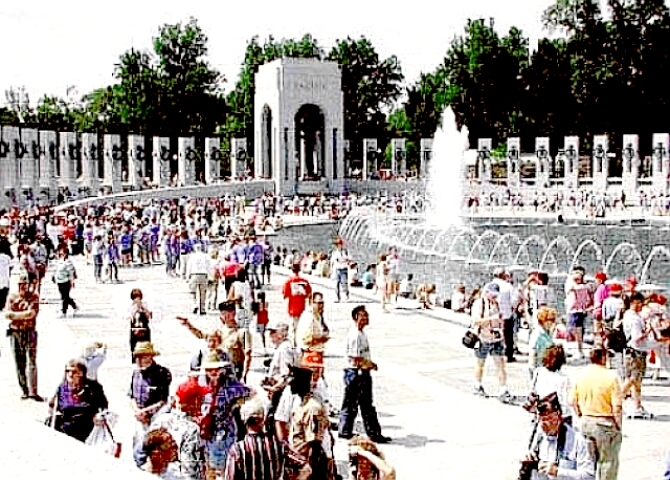
Dear Reader,
Should you wish to read about william's own combat experiences you will find them at Fear
 to Archives Main Page
to Archives Main Page
